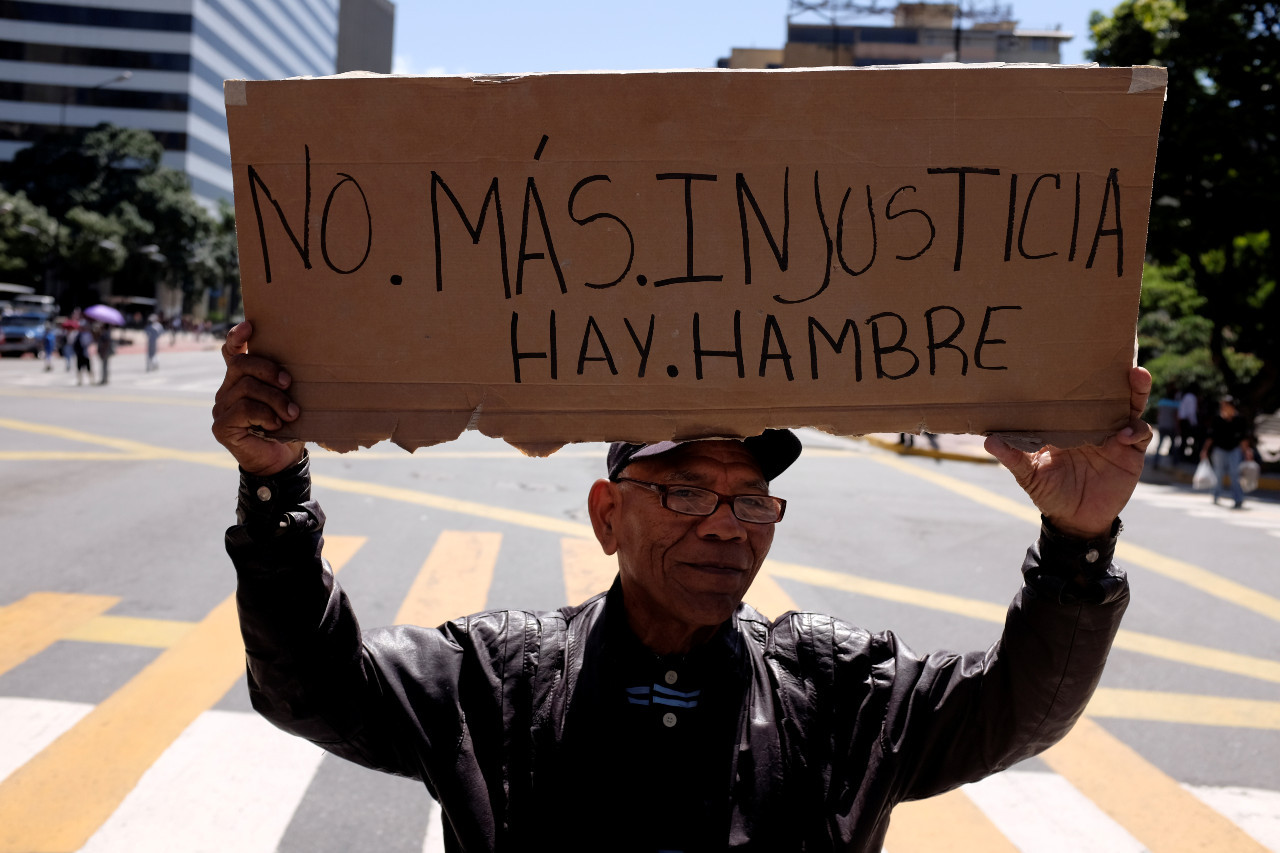Popular Reads
Top Results
Can't find what you're looking for?
View all search resultsPopular Reads
Top Results
Can't find what you're looking for?
View all search resultsNearly 75 percent of residents in Venezuela's capital eat less than in 2019, survey shows
The government of President Nicolas Maduro in March created a strict quarantine that shuttered most businesses for months, though authorities have now allowed some economic activities during alternate weeks. The country has reported over 700 deaths and 87,000 infections from COVID-19.
Change text size
Gift Premium Articles
to Anyone
S
ome 75 percent of residents in Venezuela's capital Caracas eat less food than they did in December 2019, according to a survey released on Wednesday by opposition legislators, signaling that the COVID-19 pandemic has exacerbated an existing hunger problem.
The government of President Nicolas Maduro in March created a strict quarantine that shuttered most businesses for months, though authorities have now allowed some economic activities during alternate weeks. The country has reported over 700 deaths and 87,000 infections from COVID-19.
The effects of the pandemic and restrictions have been much more pronounced in Venezuela than in other countries due to a lack of government support, said legislator Jose Guerra during a virtual news conference.
"In the case of Venezuela it is more acute... precisely because of the absence of complementary measures," said Guerra, of opposition party First Justice, which organized the survey.
The survey found that 73.9% of people had reduced consumption of beef and chicken, while 82.3% said their income was insufficient to buy food for their family.
"If that happens in the capital, which (the government) has tried to exempt from all the problems... what is left of the rest of the country?" said legislator Leonardo Regnault.
The survey consulted 950 people by telephone in the Capital District between Oct. 12 and Oct. 14 and had a margin of error of 5%, said Regnault.
The information ministry did not immediately reply to a request for comment.










